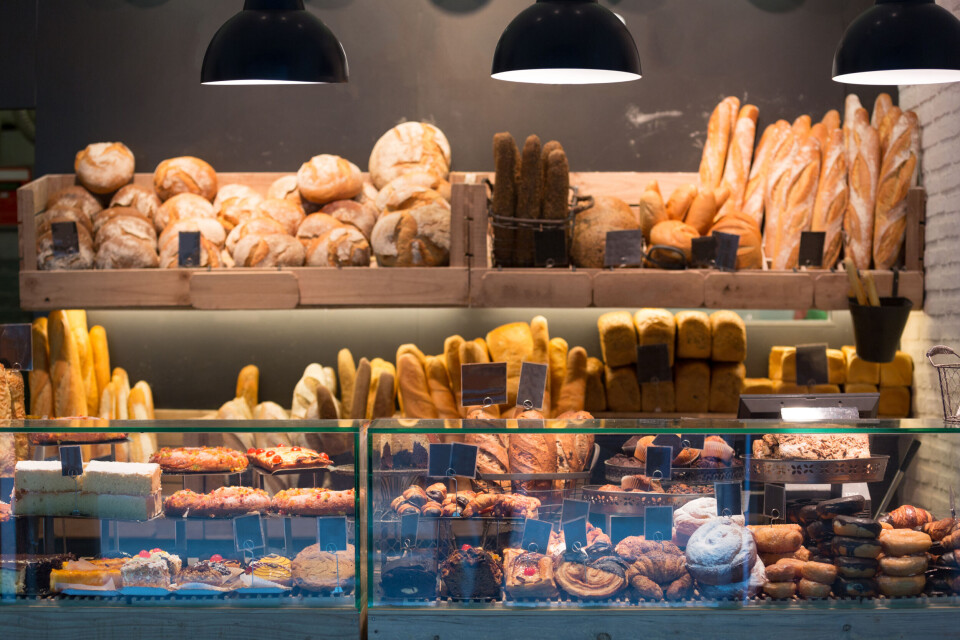-
Savoyards poke fun at Parisians over snow disruption
A few centimetres shut down capital but for those in Savoie ‘it’s time to clear the chalet steps so no one slips after an apero’
-
Lookalike La Poste site accused of misleading users in France
Reader says he was overcharged by poste-en-ligne.com and his letter did not even arrive
-
French eye care system: readers’ experiences
Two readers have a differing opinion of the system
Ask a French person: why would bakery not swap my ‘soggy’ pastry?
We look at why a reader’s request to swap a pastry resulted in the baker threatening to call the police

Reader question: I returned to a boulangerie to ask for a new mille-feuille pastry as the one I bought was ‘soggy’ when I looked at it at home. I asked politely but they refused and ordered me to leave, even threatening to call the police. I'm now at home with a cup of coffee and no pastry, in tears. l just want to leave the country. What did l do wrong?
Our French journalist replies:
First of all, I hope you will change your mind and not leave France over a mille-feuille. Only brioches can get you decapitated (ask Marie-Antoinette!).
I have never experienced a similar scenario in a boulangerie as I have almost never been sold a bad product . When I have, I just assumed that it was a one-off mistake from the baker and accepted it.
There is no specific law in force in France regarding refunds for bakery products, whether they have been eaten or not.
“This aspect of boulangerie sales is usually settled through a common agreement between the customer and the professional,” said Delphine Mau, director of legal affairs at the Confédération nationale de la boulangerie-pâtisserie française.
If an oral agreement is not possible, the issue will be transferred to an independent industry ombudsman, said Ms Mau.
I contacted three French boulangerie owners and they all said they would always swap a product if a customer complained.
Refusing to swap a product seems odd and perhaps rude.
Complaints from clients are “very rare” and the origin of any error is usually simple to trace whether it comes from the baker mismeasuring the ingredients or from some other issue, the bakery owners said.
They added that they usually resolve the matter by offering another product free of charge, with no questions asked when they know that the problem does not stem from the recipe but rather from a client’s personal taste.
All of them said such scenarios are hardly ever taken further and are settled on a case by case basis with their reaction perhaps differing if they suspect the customer is in the habit of complaining.
However, my Frenchness means that I picked up on certain aspects of your encounter with your local boulangerie and found at least two hints that might explain your misadventure.
One could be the language barrier, while the other may come from France’s (lack of) customer service culture.
The language barrier
The nature of the English language means that its speakers can sometimes sound a little abrupt to French people when they speak.
This may be because the language itself is -- in my opinion – more concise and direct as it has three times as many words as the French language.
But it is also due to the extensive use of active-voice sentences rather than passive-voice structures such as it is the case with most French writers. Try to find the subject of the sentence in Honoré de Balzac’s phrases, for example!
French people speak and read using more passive-voice structures and convoluted sentences, where the subject is buried within the clauses.
Most French people do not realise that English sentences are often constructed in a more active manner, and many do not understand the British sense of humour, which is frequently politely deemed to be ‘absurde’ (‘absurd’.)
Likewise, do not try to explain to a French person what the word ‘wit’ means when trying to characterise the aforementioned English humour.
I am not questioning your politeness, but I suspect your local bakery could have felt offended by how your request was phrased.
You may have kept the English structuring and applied it to a French sentence so sounding as if your request was more of an order.
The owner may have misunderstood and felt that you were attacking his or her work on a personal level.
Even though I have noticed these differences between French and English languages, I still take things personally sometimes.
France’s bad customer service is not a cliché
Customer service in France is notoriously bad and the idea commonly expressed in the US – where I lived for a year – that the ‘customer is king’ is not shared in France.
You could have been unlucky enough to encounter a baker who lacks basic customer service etiquette. One of the boulangerie owners I spoke to questioned, for example, the need to threaten to call the police over a customer request.
I actually stopped going to a nearby boulangerie after I noticed the staff’s continually dismissive attitude towards me.
One employee greeted a customer waiting behind me in the queue with a ‘welcome’ shout while she had seen me waiting in the shop for a while and did not say anything. That was the final nail in the coffin.
From your experience, I would opt for a different boulangerie…
If you have a question about French manners, habits or traditions please send it to news@connexionfrance.com
Related articles
Un café s'il vous plaît. France’s terraces reopen after 6 months
France outraged as burger chain launches the ‘Croissan’wich’
























